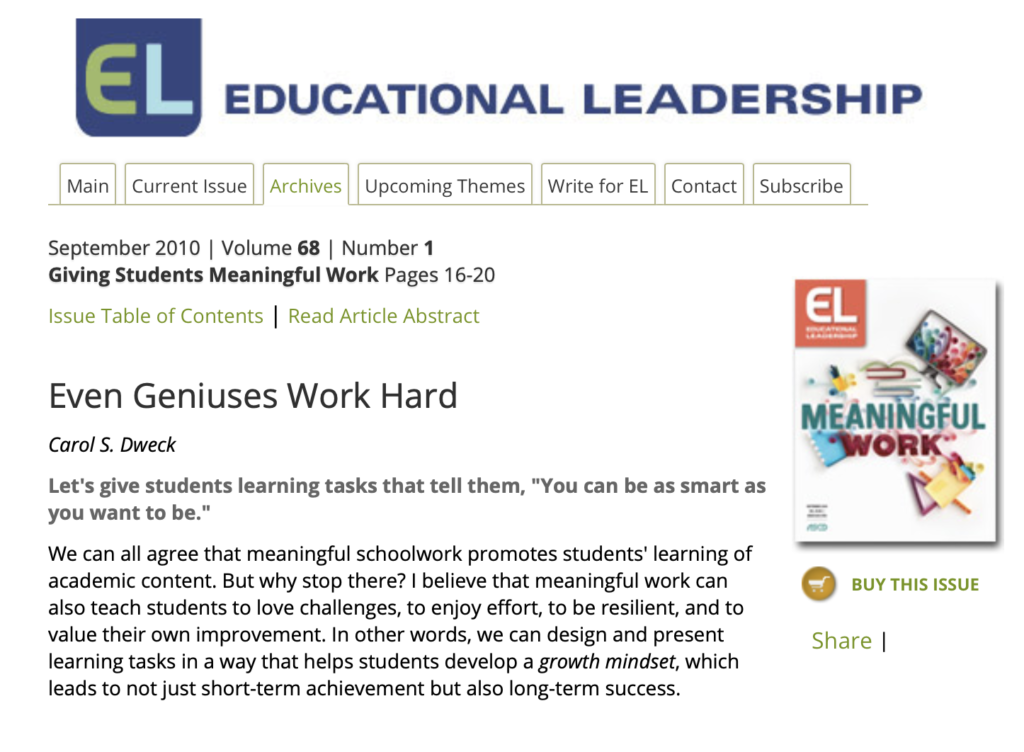Carol Dweck, Professor of Psychology at Stanford University, the author of Mindset: The New Psychology of Success (Random House, 2006) and the article Even Geniuses Work Hard posits that if students with a Fixed Mindset believe that intelligence is an inborn trait and is essentially fixed they:
- Tend to view looking smart above all else;
- May sacrifice important opportunities to learn—even those that are important to their future academic success—if those opportunities require them to risk performing poorly or admitting deficiencies;
- Believe that if you have ability, everything should come naturally;
- Tell us that when they have to work hard, they feel dumb;
- Believe that setbacks call their intelligence into question, they become discouraged or defensive when they don’t succeed right away;
- May quickly withdraw their effort, blame others, lie about their scores, or consider cheating.
In contrast Dweck explains that students with a Growth Mindset believe that they can develop their intelligence over time and subsequently will:
- View challenging work as an opportunity to learn and grow;
- Meet difficult problems, ones they could not solve yet, with great relish;
- Say things like “I love a challenge,” “Mistakes are our friends,” and “I was hoping this would be informative!”
- Value effort; they realize that even geniuses have to work hard to develop their abilities and make their contributions;
- More likely to respond to initial obstacles by remaining involved, trying new strategies, and using all the resources at their disposal for learning.
To help motivate students to adopt the growth mindset Dweck recommends that teachers create a culture of risk taking and strive to design challenging and meaningful tasks. This will require teachers to learn to encourage and reward effort, persistence and improvement rather than simply reward results and test scores. It will also mean that instructors will need to educate student on the different mindsets. Dweck offers many key recommendations in the article that include:
- Emphasizing Challenge, Not “Success”
- Giving a Sense of Purpose;
- Grading for Growth.
To help teachers learn more about a growth mindset Dweck and her colleagues have developed growth mindset curriculum that can be accessed at www.brainology.us.































